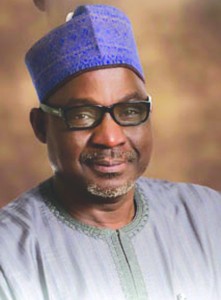[tweet][digg][stumble][Google][pinterest][follow id=”DER29709692″ size=”large” count=”true” ]
The Central Bank of Nigeria recently adjudged banks in the country to have improved significantly in terms of adherence to good corporate governance, but analysts call for more vigilance based on recent reports of cases where bank directors breached corporate governance rules, writes Osaze Omoragbon.
Since the intervention of the Central Bank of Nigeria (CBN) in the banking sector in 2009 following the global financial crisis that wreaked havoc on the banks’ balance sheet and nearly led to systemic collapse, there has been a favourable outlook on corporate governance in the sector. This follows the reforms by the apex bank to rid the system of abuse and further put the financial system on a solid footing. Five years after the intervention, the verdict is out; corporate governance has improved significantly in the sector. The CBN thinks so. In its 2012 annual report, the apex bank said of corporate governance in the banks: “The CBN conducted on-site verification to validate banks’ claims of compliance with the provisions of the current Code of Corporate Governance for Banks in Nigeria. The exercise revealed substantial compliance with the provisions of the Code…..Good corporate governance, enhanced internal controls and risk management practices were the major factors that influenced the improvement in the risk profile of banks”.
Though analysts credit the apex bank reforms for the improvement in corporate governance, they are not as optimistic as the CBN, citing some recent cases of infringement as well as loopholes in the corporate governance laws.
In the wake of the CBN intervention, several reforms were instituted to limit corporate governance abuse such as the tenure limit on banks’ CEOs and Executive Directors, scrapping of universal banking model which paved the way for the categorization of banks and issuing a revised prudential guidelines, among others. “Corporate governance has improved due to reforms of the CBN. Bank directors are now very careful and adhere strictly to the prudential guidelines,” says a management staffer of one of the top five banks who pleaded for anonymity.
However, recent scandals in the banking sector involving bank directors have raised issue as to whether the improved corporate governance in the sector can be sustained. Behaviour of bank directors which fell short of what the law stipulated has sent shock through the financial sector. The recent exit of Mr. Kolapo Lawson and Mr. Thierry Tanor, chairman and chief executive officer respectively of Ecobank Transnational over breach of corporate governance rules as well as the recent letter written by Unity Bank accusing its erstwhile chief executive officer of breaching corporate governance rules are few examples of cases where bank directors breached corporate governance rules.
Mr. Lawson was forced to step down after Laurence Do Rego, executive director Risk and Finance told regulators that Lawson and Tanor planned to sell assets below market value and was also pressured to write-off debts owed by Agbara Estate Limited owned by him (Lawson) and manipulate the bank’s 2012 results. This prompted the Securities and Exchange Commission (SEC) to investigate possible breach in extant rules. Though the matter has since been resolved, some feel without the prying eyes of the media and Do Rego’s testimony, the loan would have been written-off. This set the stage for the exit of Thierry Tanor, who had barely spent a year as chief executive officer of Ecobank Transnational. He was also accused of obstructing investigation into corporate governance breach in the bank as well as not carrying out recommendations of the SEC to recall Do Rego. Shareholders pushed for his exit.
Likewise, Unity Bank recently petitioned the CBN over alleged N3.4billion loan owed by its former Managing Director, Mr. Falalu Bello. In a letter to the CBN, the bank alleged that Mr. Bello approved the sum of N3.4billion to MBS Merchant Ltd, his company, to import fertilizer for which he is now “foot dragging to pay back”. Unity Bank alleged that three deferred letters of credits (LCs) were subsequently opened sometimes between June and September last year in favour of MBS Merchant. The bank also alleged that there was no formal application/approval for the LCs, saying Bello “used his influence to open the LCs and also flagrantly refused to ensure adequate and sufficient cash collateral at the maturity of the LCs. This was in spite of several demands from management”. The bank says it has suffered reputational risk as a result of this incident.
Observers also blame bank directors for providing services to such banks, saying it amounts to conflict of interest. Take the case of Cosmas Maduka, chief executive officer Coscharis Motors and a board member of Access Bank. His company Coscharis, supplies cars to Access Bank just as its Chairman, Mr Gbenga Oyebode, a lawyer provides legal services to the same bank.
Some experts say a lot has been done to improve risk management especially credit risk. However, they contend that more needs to be done in operational risk. These recent infringements are making observers to cast doubt on the sustainability of corporate governance in the banking sector. They are worried that the subsisting corporate governance framework is not robust enough to deal with the issue of conflict of interest. “It is an aberration that a director’s company sells cars to the bank on whose board he sits,” says a banker who preferred anonymity. Femi Awoyemi, chief executive officer, Proshare thinks otherwise. He believes directors’ interests in companies having business dealings with their banks will not necessarily results in insider abuse. According to him, there are rules and procedures that guide the selection of companies that render such services.
The consensus is that there are still loopholes that could be exploited by greedy directors and as such the apex bank should increase its vigilance.
[divider]



